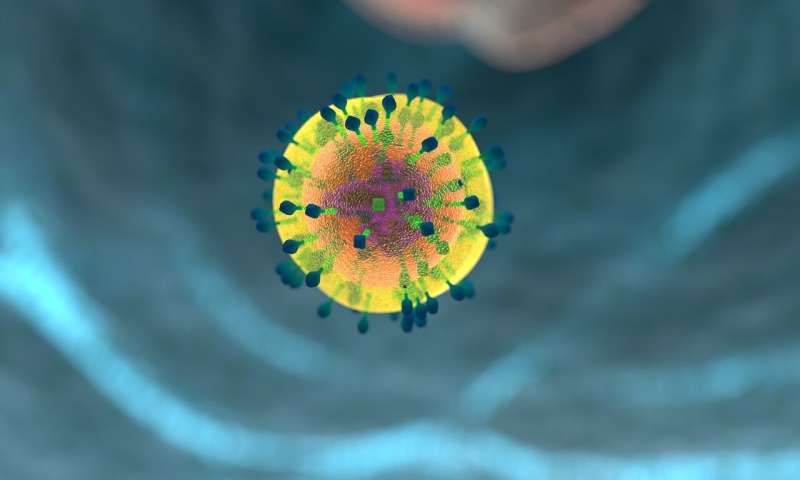September 4, 2023 report
This article has been reviewed according to Science X's editorial process and policies. Editors have highlighted the following attributes while ensuring the content's credibility:
fact-checked
peer-reviewed publication
trusted source
proofread
Improving CAR T-cell and monoclonal antibody treatment through epitope editing

In a paper, "Epitope editing enables targeted immunotherapy of acute myeloid leukaemia," published in Nature, researchers at the Department of Pediatric Oncology, Dana-Farber Cancer Institute, Boston, introduce a genetic alteration to donor hematopoietic stem/progenitor cells (HSPCs) that allows them to survive immunotherapy treatment for acute myeloid leukemia (AML).
When the immune system encounters foreign antigens (parts of pathogens or tumors), it tries to identify and neutralize them. Epitopes are the parts of these antigens that the immune system "sees" and recognizes as targets for an immune response.
While chimeric antigen receptor (CAR) T-cells and monoclonal antibodies have shown great promise in treating blood malignancies by targeting antigens on rogue cells, their use with AML is hindered by the lack of tumor-specific markers. This leads to the risk of damaging healthy cells and tissues during treatment.
Epitope engineering, specifically the editing of hematopoietic stem/progenitor cells (HSPCs) obtained from a donor for use in bone marrow transplantation, is a possible solution to this challenge. The modification of specific genes in HSPCs, such as FLT3, CD123, and KIT, changed epitope markers without altering the normal function of the genes.
The approach could enhance the safety and efficacy of treatment through more efficient targeting of cancer cells while sparing healthy ones and reducing harmful off-target side effects.
Edited epitope cells result in the loss of specific antibody binding sites, making cells resistant to CAR T-cells and monoclonal antibodies without affecting their physiological expression, regulation, and intracellular signaling.
The authors suggest that epitope engineering could be applied not only to AML but also to other hematological malignancies and potentially to non-genotoxic conditioning for non-malignant diseases.
Beyond the scope of the study is the cost of personalized medicine. Currently, CAR T-cell treatment alone can cost upwards of a million dollars. While introducing an epitope gene editing method could drive the cost higher, it could offset that expense if it makes the overall investments in CAR T-cell therapy safer and more effective.
More information: Gabriele Casirati et al, Epitope editing enables targeted immunotherapy of acute myeloid leukaemia, Nature (2023). DOI: 10.1038/s41586-023-06496-5
© 2023 Science X Network




















